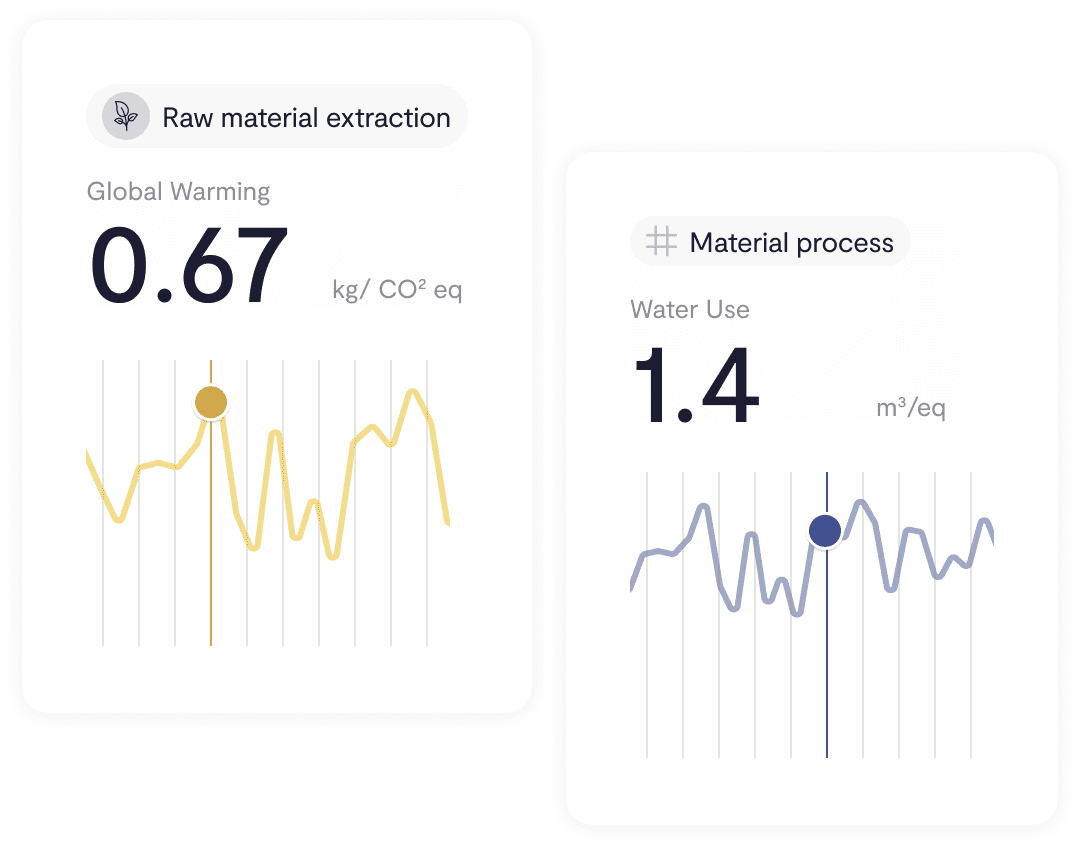Fortunately, in recent years, the news launched by brands have made it clear that eco-design is gaining ground in the fashion industry. The application of sustainable principles from the conception of the garment is promoting the appearance of products made from unconventional materials that seek to achieve a more responsible future. If you are involved in the design and development of textile products, pay attention to what are the solutions in terms of sustainable fabrics that you could start applying to your new collections right now.
It’s necessary to increase investment in strategies that promote the growth of recycling, as well as circular business models
According to the latest Preferred Fiber and Materials Market Report recently published by Textile Exchange, large textile groups are venturing to purchase a larger volume of sustainably sourced and recycled materials. However, it’s still considered necessary to increase investment in strategies that promote the growth of recycling, as well as circular business models.
Although greenhouse gas emissions associated with the production of materials decreased by 5% during 2020, this is due, in part, to the interruptions caused by the pandemic. It’s estimated that it will still take us a few years to discover what the real market trend is, since during this period the decisions of fashion companies were very different. While a large part chose to duplicate the search for more sustainable materials, another sector decreased the use of these fabrics.
The conclusions of this report are aligned with the latest textile innovations presented during the Global Fashion Summit. Event in which brands such as GANNI confirmed their commitment to the research and development of innovative materials to achieve the transition towards a more circular fashion industry with less impact.
We can also observe this example in large firms. This is the case of the first bag designed from mycelium by the British brand Stella McCartney. This vegan alternative to animal leather is grown in a laboratory using renewable resources. Undeniable proof that innovation and design are two closely linked concepts.
Technology is moving fast and the permanent search for alternative fabrics that reduce resource consumption and have less impact on the planet has led to the creation of new textile materials.
Innovation must be accompanied by a deep understanding of your product
Here are 4 of the innovations that are gaining popularity in the fashion industry and that promise to replace conventional materials:
- Mylo by Bolt Threads. As we anticipated, it’s the mycelium-based alternative to leather released thanks to the support of Stella McCartney. This biomaterial, also known as “mushroom leather”, is made from fungal structures and has achieved a great similarity to animal leather, being soft, flexible and less harmful to the environment.
Adidas is one of the brands that has dared to use mylo in its products, specifically we can see it in a new version of its classic Stan Smith model.
- Brewed Protein Materials by Spiber. These materials are produced through a fermentation process that uses sugars and microbes, rather than petrochemical or animal-derived raw materials. From alternatives to silk or wool, this company offers a wide range of unconventional materials.
In 2019, Spiber teamed up with The North Face to create the first jacket made from synthetic spider silk. A reproduction of one of the most resistant textile materials in the world.
- Tencel by Lenzing. Similar to viscose, this type of rayon requires less energy and water than conventional cotton. As a plant-based fiber, it’s also biodegradable. Thanks to the scalability of its production, it’s one of the most widespread innovative materials on the market today.
We can find it in the usual collections of some of our brave brands such as Filippa K or SKFK.
- Cupro. This regenerated cellulose fabric is made from cotton waste. It uses tiny cotton fibers, too small to be spun. The result is a biodegradable material with features similar to silk but with easier care.
Alter Made is one of the brave brands that has introduced cupro in its most common materials portfolio.
Regardless of the advantages presented by the innovations that appear every day in the textile field, it’s essential to remember two of the essential criteria when selecting the best fabric for our design:
- Define what will be the main use that the consumer will give to the garment.
- Study what the features of the fabric should be to get the best performance of the product.
The market is advancing and every day material suppliers offer more options to brands. However, innovation must be accompanied by a deep understanding of your product. Establishing the features that a garment must meet is essential to create durable, comfortable and attractive pieces that satisfy the needs of your end customer.
At BCome we are aware of the need to find alternatives with similar performance to conventional fabrics that also have a lower impact on the environment. For this reason, we’ve made our Stage Comparator available to our brands. An independent tool based on Life Cycle Assessment that allows our clients to quickly and easily compare the environmental footprint of two different scenarios for each of the stages of their supply chain, including the selection of fabrics.
We have the solutions to help you make decisions that promote the sustainable development of your business. Do you want to learn more? Let us show it to you!






